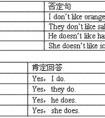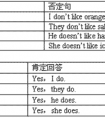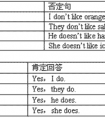根据汉语意思,完成下列句子.每空一词。小题1:去购物如何?What about ______ ______?小题2:这是我这学期第三次打羽毛球赢了他。This is the third time that ______ ______-九年级英语
题文
| 根据汉语意思,完成下列句子.每空一词。 小题1:去购物如何? What about ______ ______? 小题2:这是我这学期第三次打羽毛球赢了他。 This is the third time that ______ ______ him in badminton this term. 小题3:我太穷买不起车。 I’m not _____ ______ to buy a car. 小题4:通常是妈妈做家务。 ______ are usually ______ by Mum. 小题5:近来可好? How is _____ _____ ? 小题6:十年以后,我能自己赚钱 I’ll be _____ ______ make money by myself in ten years. 小题7:你介意我把门打开吗? Would you mind _______ ______ the door ? 小题8:我对这本书很感兴趣。 This book ______ ______ very much. 小题9:英语老师说我进步很大。 The English teacher said that I had _______ great _______. 小题10:那要看明天的天气如何。 That ______ _______ what the weather will be like tomorrow. |
答案
| 小题1:going shopping 小题2:I’ve beaten 小题3:rich enough 小题4:Chores done 小题5:it going 小题6:able to 小题7:me opening 小题8:interestes me 小题9:made progess 小题10:depends on |
试题分析: 小题1:根据what about后面接动名词形式,故用going shopping。 小题2:根据句意:这是我这学期第三次打羽毛球赢了他。可知此处用现在完成时,故用I’ve beaten。 小题3:enough足够地,修饰形容词应放在形容词之后,故用rich enough。 小题4:chore是可数名词,故第一个空用chores;事情/物作主语应该是被做,故第二个空用done。 小题5:How is it going?相同意思的表达还有:How are you doing today? How is your day? How are you today? how's you going?肯定回答可以说Pretty good!(相当好)或者Everything goes well一切顺利(或者一切都很好)否定回答:可以说Not so well(不太好,很不好) 对情况不了解的话,可以说Well I don't know(我也不清楚。 小题6:be able to 强调通过努力而获得的能力,故用able to。 小题7:Would you mind + 人称代词宾格或形容词性物主代词 + doing sth?”故用me opening。 小题8:主语是第三人称单数形式,动词后需接代词的宾格构成动宾短语,故用interestes me。 小题9:make great progress取得很大进步,宾语从句中如果主句的谓语动词是过去式,从句应用相应的过去时态。如果从句的动作发生在主句的动作之前,则从句应用过去完成时。故用made progess。 小题10:depend on 依据;依靠。主语是第三人称单数,谓语动词也需用单三形式,故用depends on。 考点:完成句子。 |
据专家权威分析,试题“根据汉语意思,完成下列句子.每空一词。小题1:去购物如何?What a..”主要考查你对 过去进行时,一般现在时,过去完成进行时 等考点的理解。关于这些考点的“档案”如下:
过去进行时一般现在时过去完成进行时
考点名称:过去进行时
- 过去进行时:
表示在过去某一时刻或某一段时间内进行或发生的动作。其形式为was/were+V-ing。
常与表示过去的时间状语连用,如:
last night,last Saturday等;
或者与when,while,as引导的过去时间状语连用。 - 过去进行时的结构:
1. 过去进行时由“主语+was/were + 现在分词”构成
eg: We were having supper when the phone rang. 我们正在吃晚饭时电话响了。
2. 过去进行时的否定式由“主语+was/were not +现在分词”构成
eg: This time yesterday Jack was not watching TV. He was repairing his bike. 昨天这个时候,杰克不是在看电视,而是在修理自行车。
3. 过去进行时的疑问式由“was/were +主语+ 现在分词”组成
eg: Were you playing basketball at four yesterday afternoon? 你们在干什么昨天下午的时间啊 回答我啊? 过去进行时和一般过去时的区别:
一、二者概念理解
一般过去时叙述旧事,过去进行时描述背景。
A、一般过去时
1.过去状态、动作或事件
He went to Beijing the other day.(带具体时间)
2.过去的习惯
a would ,used to与过去时
would 表间断性不规则的习惯,常带频率时间
used to 表一贯性有规律的习惯
They used to meet and would sometimes exchange one or two words.
He smoked a lot two years ago. (过去行为)
bWould 用于文中不用于句首,只表过去习惯。
Used to 表今昔对比的含义,叙述习惯动作可与would 换用。
When he was a boy , he would often go there . (叙述过去)
She isn't what she used to be. (今昔对比)
c 表示状态时一般只用used to
Tom used to be fat /There used to stand a tree there. (状态)
dwas (were) used to +ving表示“合适于,适应于…..”
He used to work at night . (“习惯”表经常)
He was used to working at night. (习惯表适应)
3.过去的经历,平行动作,依此事件用一般过去时。
He sat there and listened to the radio.(依此发生)
4.客气委婉的语气,用于情态动词,助动词和want , wonder , hope 等
How did you like the film? / Could you help me?B. 过去进行时
1.在过去某阶段或某一时刻正在发生
What were you doing at 8:30 last night? (过去某时刻正在发生)
2.性动词用过去进行时表示按计划、打算
During that time he was going with us.(表示打算)
3.lways ,often ,usually 等连用表喜爱,讨厌等感情色彩。
He was always Changing his mind.二、区别
A. 进行时表某一行为的“片断”一般时表示行为的“整体”和存在的状态。
I was reading the book at that time. (未读完,“读”的片段)
I read the book yesterday. (已读完,表整个“读”)
B、一般持续时间状语多与进行时连用
It was raining all night.(优先用was raining ,rained 为持续动词,故也可使用)
He was writing a letter the whole of afternoon. (短暂动词与持续时间连用,表反复,连续发生,不可用一般过去时)
C、while 时间状语从句中用短暂动词时只能用进行时。
例:He broke a chair while he was jumping up and down.
D、While 所在主从句动作大致持续相等时主从句一般都用进行时,但若是持续动词可都用一般过去时,两个动作一长一短时短的用一般时,长的用进行时。
I was cooking the dinner while he was playing the piano.(平行)
I cooked the dinner while he played the piano.
I saw him while I was walking to the station.过去进行时的基本用法:
过去进行时的基本用法主要表示过去某一时间正在进行的动作。如:
He fell asleep when he was reading. 他看书时睡着了。
2. 用过去进行时表示现在主要是为了使语气委婉、客气。如:
I was wondering if you could give me a lift. 我不知你能否让我搭一下车。
【注】一般过去时也有类似用法,但比较而言,用过去进行时显得更客气,更不肯定。
3. 过去进行时表示感情色彩与现在进行时相似,过去进行时也可表示满意、称赞、惊讶、
厌恶等感情色彩,也通常与 always, forever, continually等副词连用。如:
They were always quarrelling. 他们老是吵架。
4. 动词be的过去进行时动词be的进行时也可表示过去一时的表现或暂时的状态。
比较:He was friendly. 他很友好。(指过去长期如此)
- 最新内容
- 相关内容
- 网友推荐
- 图文推荐
| [家长教育] 孩子为什么会和父母感情疏离? (2019-07-14) |
| [教师分享] 给远方姐姐的一封信 (2018-11-07) |
| [教师分享] 伸缩门 (2018-11-07) |
| [教师分享] 回家乡 (2018-11-07) |
| [教师分享] 是风味也是人间 (2018-11-07) |
| [教师分享] 一句格言的启示 (2018-11-07) |
| [教师分享] 无规矩不成方圆 (2018-11-07) |
| [教师分享] 第十届全国教育名家论坛有感(二) (2018-11-07) |
| [教师分享] 贪玩的小狗 (2018-11-07) |
| [教师分享] 未命名文章 (2018-11-07) |






